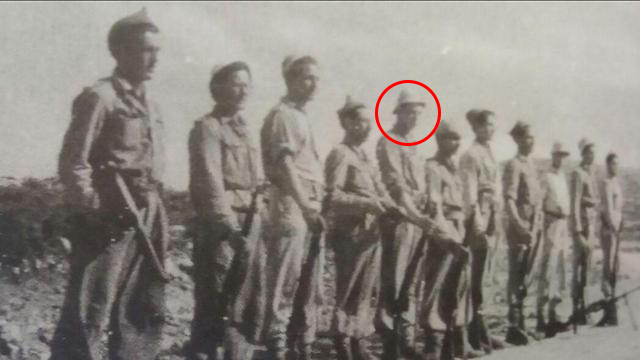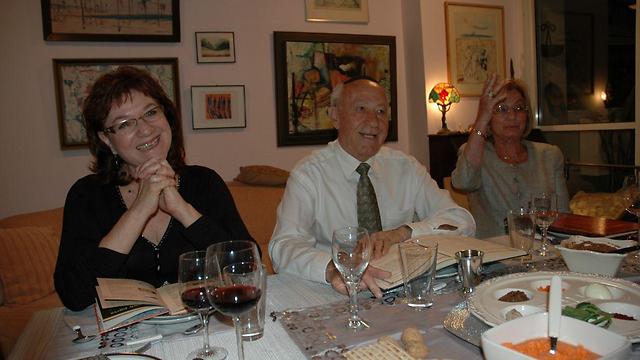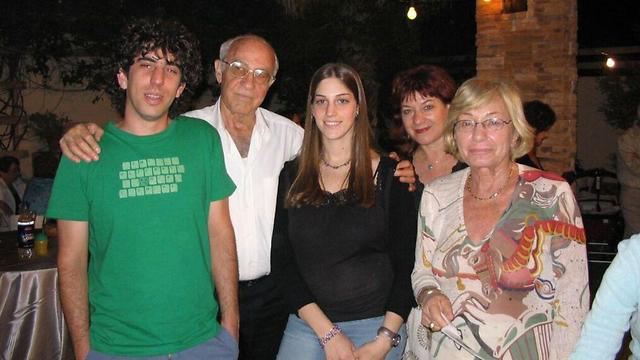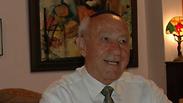
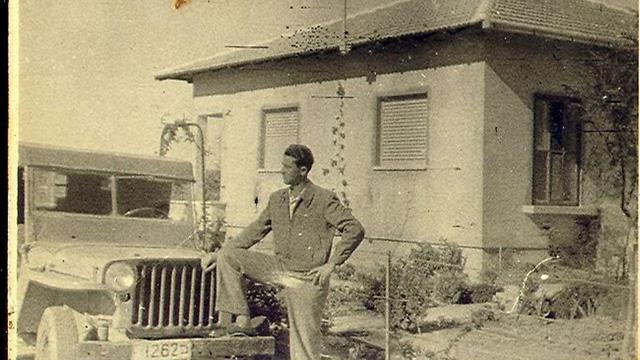
How I survived the Holocaust and Jordanian captivity
As a child who had lost his entire family before and during World War Two, Pesach Anderman hid in forests and barns in Ukraine in the freezing cold. After immigrating to Israel, he fought in the battle for Gush Etzion and was held captive in Jordan for nearly a year. Now, at the age of 88 and becoming a leading Israeli industrialist, he is finally sharing the story of his life and the horrors of the Holocaust with both Germans and IDF soldiers.
Anderman was a nine-year-old boy in the town of Buchach in Galicia (today in Ukraine) when World War Two began. His father passed away before the war and his mother died of typhus fever. All his relatives were murdered by the Ukrainians, who collaborated with their Nazi occupiers. During the war, he says, he hid in forests and barns, constantly moving around at night in search of food.
“It was a winter of minus 35 degrees,” Anderman recalls. “None of the Ukrainian peasants knew I was hiding in their barn under the chaff. All I could think about was how to survive and how to escape the danger. I was caught by the Ukrainians five times and always managed to flee at the very last moment.”
In a conversation with Ynet, he talks about the horrors he experienced almost 80 years ago, horrors which he also describes in lectures he gives in Germany.
“The Ukrainians had a game. They took an iron wire which had a bullet attached to its end. They put the bullet near my forehead and hit the cap. The bullet exploded, a fragment hit me in the forehead and I passed out. The Ukrainians thought I was dead, and that’s how I saved myself.” Somehow, little Pesach managed to reach the nearby river and remove the fragment on his own in the freezing water.
At the end of the war, young Pesach realized he had no reason to stay in Ukraine. All his relatives had been murdered, and he decided to immigrate to the Land of Israel. In Bucharest, he teamed up with a group of Jewish children, some of whom had legal immigration certificates. When the children boarded the immigrants’ ship as a group, Pesach snuck in secretly.
Anderman still remembers the first moment he saw the Land of Israel. “At dawn, we saw the lights of the Carmel. I couldn’t believe I had made it,” he says excitedly. He studied agriculture in the Mikveh Israel school and then went up with his settlement group to Kibbutz Masu’ot in Gush Etzion.
“We celebrated the State of Israel on November 29, and the next day the war broke out,” he recalls. “The Arabs started firing from all directions on the four kibbutzim of Gush Etzion: Revadim, Tzurim, Masu’ot and Kfar Etzion. I was sent to the center of the bloc with my squad. My commander gave me an order: ‘Pesach, take the lead!’ I wasn’t afraid of anything. I decided to fight all the way.”
But the battle for Gush Etzion ended in defeat with the death of 242 Israelis, both fighters and kibbutz members. Due to the grave situation of the forces and following the Kfar Etzion massacre, the leadership instructed the fighters to surrender.
“We didn’t believe they wanted us to surrender, because I got the dismembered bodies of the Convoy of 35. I saw what they had done. I said it was out of the question.” Anderman was taken captive by the Jordanians and was released only 11 months later, as part of a prisoner swap deal.
In the following years, Anderman became a successful industrialist. For years, he refused to share the events of the Holocaust with his family. Only in recent years did he start giving lectures on the issue in many places, including the IDF and Germany, and he has an important message for the young generation of the state he helped found.
“We didn’t get the state on a silver platter. A lot of blood was shed,” he says from his home in Tel Aviv. “We expect the next generations to protect the homeland we founded from scratch. We worked because we knew we were doing something historic—building a homeland for the Jewish people. For me, the IDF is the holiest thing there is, because without security we have nothing.”
Reut Rimmerman contributed to this report.















